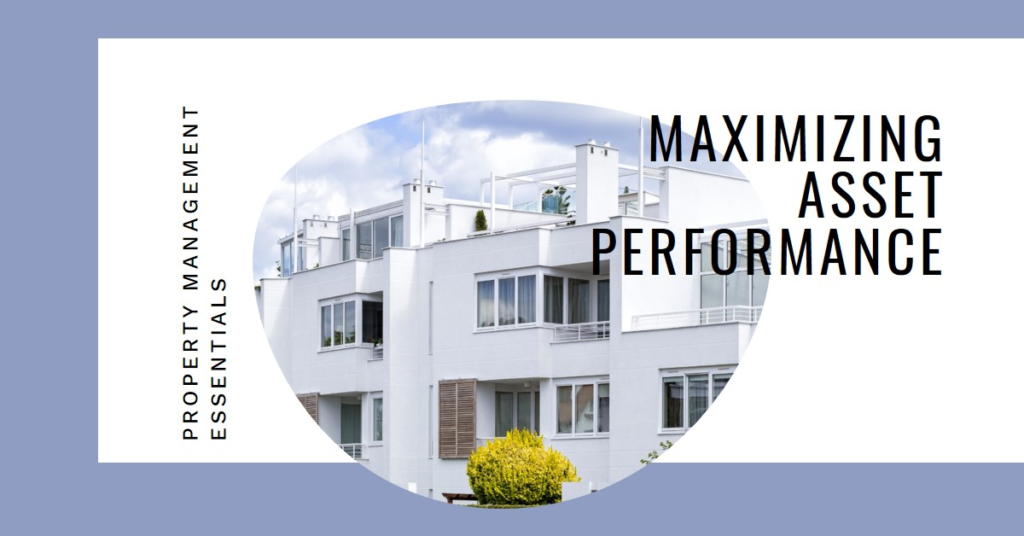
Table of Contents
Introduction to Property Management
Property management is an intricate dance of balancing the needs of tenants, maintaining the property, and maximizing returns for the owner. Whether you’re a seasoned property manager or a novice investor, understanding the essentials of property management is crucial for success in the real estate market. In this comprehensive guide, we’ll delve into the core principles and strategies that can help you optimize asset performance and achieve your investment goals.
Understanding Asset Performance:
Asset performance in property management refers to the ability of a property to generate income and appreciate in value over time. It encompasses various factors such as rental income, occupancy rates, property maintenance, and market appreciation. Maximizing asset performance requires a multifaceted approach that involves proactive management, strategic decision-making, and a deep understanding of market dynamics.
Setting Clear Objectives:
The first step in maximizing asset performance is to define clear objectives for the property. Whether your goal is to maximize rental income, increase property value, or achieve a specific return on investment, having clearly defined objectives will guide your decision-making process and help you stay focused on your long-term goals. Objectives should be SMART (Specific, Measurable, Achievable, Relevant, and Time-bound) to ensure clarity and accountability.
Effective Tenant Screening:
One of the most critical aspects of property management is selecting the right tenants. A rigorous tenant screening process can help minimize risks such as late payments, property damage, and evictions. Conducting thorough background checks, verifying employment and income, and checking references can help ensure that you choose reliable and responsible tenants who are more likely to pay rent on time and take care of the property.


Proactive Maintenance:
Regular maintenance is essential for preserving the value of your property and ensuring tenant satisfaction. Implementing a proactive maintenance plan can help prevent costly repairs and minimize downtime between tenants. Schedule routine inspections, address maintenance issues promptly, and invest in preventive measures such as landscaping, pest control, and HVAC servicing to keep your property in top condition.
Strategic Marketing:
Effective marketing is key to attracting qualified tenants and minimizing vacancies. Develop a comprehensive marketing strategy that leverages both online and offline channels to reach your target audience. Showcase the unique features and amenities of your property, highlight its location and proximity to amenities, and use high-quality photos and virtual tours to showcase its appeal. Consider partnering with local real estate agents and listing your property on popular rental websites to increase visibility.
Optimizing Rental Rates:
Setting the right rental rates is crucial for maximizing income and minimizing vacancies. Conduct market research to understand the prevailing rental rates in your area and assess the demand for similar properties. Consider factors such as location, property size, amenities, and market trends when determining your rental rates. Be flexible and willing to adjust your rates periodically to stay competitive and attract quality tenants.
Building Strong Relationships:
Building positive relationships with tenants, vendors, and other stakeholders is essential for long-term success in property management. Treat tenants with respect, respond promptly to their concerns, and strive to exceed their expectations. Foster open communication and address issues proactively to prevent escalation. Similarly, establish strong partnerships with reliable vendors and contractors who can provide quality services at competitive prices.
Continuous Learning and Improvement:
The field of property management is constantly evolving, with new technologies, regulations, and market trends shaping the industry. To stay ahead of the curve, invest in continuous learning and professional development. Attend industry conferences, participate in workshops and training programs, and network with other professionals to exchange ideas and best practices. By staying informed and adaptable, you can position yourself for success in the dynamic world of property management.
Conclusion:
Maximizing asset performance in property management requires a combination of strategic planning, effective execution, and ongoing optimization. By setting clear objectives, implementing proactive management practices, and staying abreast of industry trends, you can unlock the full potential of your investment property and achieve long-term success in the real estate market.


